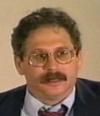 Michael Grodin
Michael Alan Grodin, M.D., is Director of the Bioethics and Human Rights
Program and Professor of Health Law, Bioethics, Human Rights, Socio-Medical
Sciences and Community Medicine and Psychiatry at the Boston University Schools
of Public Health and Medicine, where he is the recipient of the Norman A.
Scotch Award for Excellence in Teaching. In addition, Dr. Grodin is a Professor
of Philosophy in the College of Arts and Sciences. He completed his B.S. degree
at the Massachusetts Institute of Technology, his M.D. degree at the Albert
Einstein College of Medicine, his postdoctoral and fellowship training at UCLA
and Harvard, and he has been on the faculty of Boston University for the past
25 years.
Dr. Grodin is the Medical Ethicist at Boston Medical Center and for thirteen
years served as the Human Studies Chairman for the Department of Health and
Hospitals of the City of Boston. He is a fellow of the Hastings Center, served
on the board of directors of Public Responsibility in Medicine and Research,
the American Society of Law, Medicine and Ethics, and serves on the Advisory
Board of the Center for the Philosophy and History of Science. He was a member
of the National Committee on Bioethics of the American Academy of Pediatrics
and the Committee on Ethics of the American College of Obstetricians and
Gynecologists. Professor Grodin serves on the Ethics Committee of the
Massachusetts Center for Organ Transplantation, is a consultant to the National
Human Subjects Protection Review Panel of the National Institutes of Health
AIDS Program Advisory Committee, and is a consultant on Ethics and Research
with Human Subjects for the International Organizations of Medical Sciences and
the World Health Organization. He is a member of the Ethics Review Board of
Physicians for Human Rights. Dr. Grodin is the Co-Founder of Global Lawyers and
Physicians: Working Together for Human Rights, Co-Director of the Boston Center
for Refugee Health and Human Rights: Caring for Survivors of Torture and he has
received a special citation from the United States Holocaust Memorial Museum in
recognition of his "profound contributions - through original and creative
research - to the cause of Holocaust education and remembrance." The
Refugee Center which he Co-Directs received the 2002 Outstanding Achievement
Award from the Political Asylum/Immigration Representation Project for
"sensitivity and dedication in caring for the health and human rights of
refugees and survivors of torture." He is a Member of the Global
Implementation Project of the Istanbul Protocol Manual on the Effective
Investigation and Documentation of Torture and Other Cruel, Inhuman or
Degrading Treatment or Punishment and an Advisor to UNESCO. Dr. Grodin was the
2000 Julius Silberger Scholar and is an elected member of the Boston
Psychoanalytic Society and Institute and the American Psychoanalytic
Association. He has received a national Humanism in Medicine Award for
"compassion and empathy in the delivery of care to patients and their
families."
Dr. Grodin has delivered several hundred national and international
addresses, written more than 150 scholarly papers, and edited or co-edited 5
books: The Nazi Doctors and the Nuremberg Code: Human Rights in Human
Experimentation and Children as Research Subjects: Science, Ethics and
Law of the Bioethics Series of Oxford University Press, a book in the
Boston Studies in the Philosophy of Science Series of Kluwer Academic Press
entitled Meta-Medical Ethics: The Philosophical Foundations of Bioethics,
and two books published by Routledge one Health and Human Rights: A Reader
selected as 2nd of the top 10 humanitarian books of 1999 and another entitled
Perspectives on Health and Human Rights. Professor Grodin is presently writing
a paper on Ethics and Psychoanalysis and working on a new book entitled Mad,
Bad or Evil: Physician Involvement in Human Rights Abuses From Nazi Germany to
the Former Yugoslavia. Dr. Grodin's primary areas of interest include: the
relationship of health and human rights, bioethics and the philosophy of
psychiatry and psychoanalysis.
|
|
To return to previous topic, click on your browser's 'Back' button. |
Email
link |
|